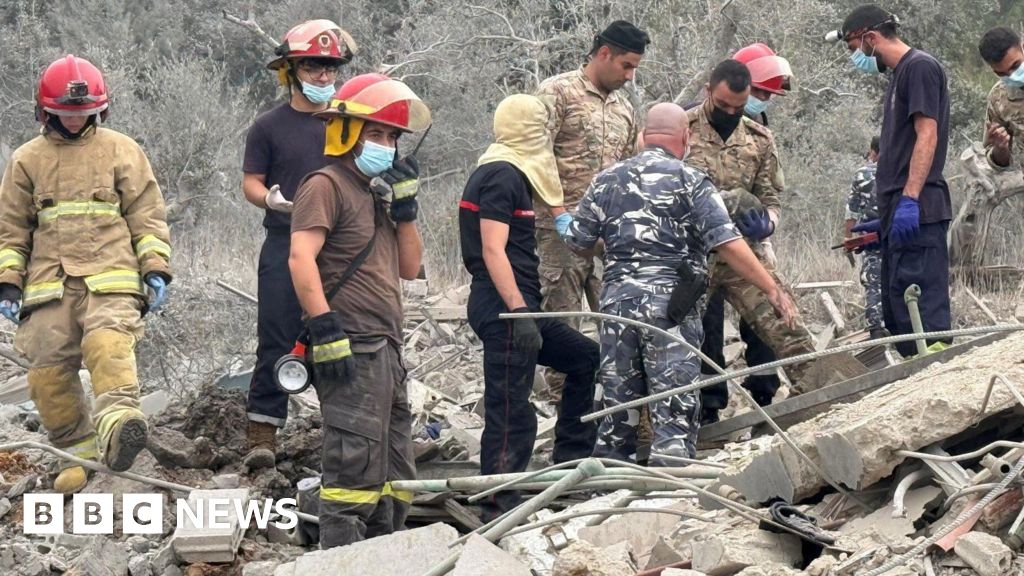Also on Tuesday, the UN refugee agency said that more than a quarter of Lebanon was now covered by Israeli military evacuation orders.
“People are heeding these calls to evacuate, and they’re fleeing with almost nothing,” the agency’s Middle East director Rema Jamous Imseis told a press briefing.
The evacuation orders, coupled with Israel’s ground invasion and bombing campaign, have driven a massive exodus of Lebanese people from the affected areas.
More than 1.2 million people have been displaced, according to the Lebanese government. They have fled villages and major cities in the south, and moved north to Beirut, Tripoli and other cities.
Many have ended up in unsafe and unsanitary conditions in shelters in and around the capital, where schools and shops have been closed to house people.
The sheer volume of displaced people has overwhelmed welfare services, the mayor’s office told the BBC, leaving thousands of displaced people on the streets.
Using plans made for the previous invasion, in 2006, the municipality had prepared for just 10% of the actual number of people, mayor Abdallah Darwich told the BBC last week.
“We did not imagine it could be this huge,” he said. “Every day our calculations have become larger and larger.”
The Israeli strikes on Beirut, focused on the southern suburb of Dahieh, had become a daily and nightly occurrence over the past three weeks, but the capital has not been hit for nearly five days.
On Tuesday, US State Department spokesman Matthew Miller said Washington had raised “concerns” with the Israeli government over the “scope and nature” of its bombing of Beirut in recent weeks.
“Israel does have a right to defend itself against those terrorists who pose a threat to the state of Israel, but we’ve had real concerns about the nature of the campaign that we saw roll out across Beirut over the past few weeks,” he said.
“We’ve seen [the number of strikes] come down over the past few days,” he added.
Following the Hezbollah drone strike on Sunday, Netanyahu threatened on Monday night that he would continue striking the group in Lebanon “without mercy”, including Beirut.
On Tuesday evening, Netanyahu said in a phone call with President Emmanuel Macron that he was opposed to “a unilateral ceasefire, which would not change the security situation in Lebanon and would return the country to its previous state”.
Earlier in the day, the deputy leader of Hezbollah, Naim Qassem, issued his own threat to Israel, saying the group had “a new calculation” to inflict pain on its enemy.
At the same time, Qassem, speaking in a televised address, called for a ceasefire, saying that it was the only solution to the current conflict. “If the Israelis do not want that, we will continue,” he added.
Israeli strikes have killed at least 2,309 people over the last year, according to figures from the Lebanese government, which does not distinguish between combatants and non-combatants.
Israel has said around 50 Israelis, both soldiers and civilians, have been killed.

